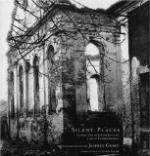With an abrupt movement of the back of his hand the Indian smoothed the sand. Squatting back more on his haunches, he refilled his pipe and began to tell of the trappers. In their description he referred always to the map he had drawn on Bolton’s imagination as though it had actually lain spread out before them. Sam referred each name to its district, as you or I would write it across the section of a chart, and kept accurately in mind which squares of the invisible map had been thus assigned and which not. It was an extraordinary effort, but one not unusual among practised woods runners. This peculiarly minute and concrete power of recollection is early developed in the wild life.
The Indian finished. Sam remained a moment in contemplation. The districts were all occupied, and the name of Jingoes did not appear. That was, however, a small matter. The Ojibway might well have changed his name, or he might be paying for the privilege of hunting in another man’s territory. A less experienced man would have been strongly tempted to the more direct question. But Sam knew that the faintest hint of ulterior motive would not be lost on the Indian’s sharp perceptions. An inquiry, carelessly and indirectly made, might do no harm. But then again it might. And it was better to lose two years of time in the search than a single grain of confidence in those with whom the little party might come in contact.
After all, Sam Bolton was well satisfied. He had, by his simple diplomacy, gained several valuable results. He had firmly convinced one man of a common body, wherein news travels quickly, of his apparent intentions; he had, furthermore, an exact knowledge of where to find each and every district head-man of the whole Kabinikagam country. Whether or not the man he sought would prove to be one of these head-men, or the guest or lessee of one of them, was a question only to be answered by direct search. At least he knew where to search, which was a distinct and valuable advantage.
“Mi-gwetch—thank you,” he said to the Indian when he had finished. “I understand. I go now to see the Lake. I go to talk to each of your head-men. I go to see the trapping country with my own eyes. When I have seen all, I go to Winnipeg to tell my head-man what I have seen.”
The Indian nodded. It would have been quite inconceivable to him had Sam suggested accepting anything less than the evidence of his eyes.
The three resumed their journey that afternoon. Sam knew exactly where he was going. Dick had fallen into a sullen yet rebellious mood, unaccountable even to himself. In his spirit was the ferment of a resentfulness absolutely without logical object. With such a man ferment demands action. Here, in the accustomed labours of this woods travel, was nothing to bite on save monotony. Dick Herron resented the monotony, resented the deliberation necessary to so delicate a mission, resented the unvarying tug




